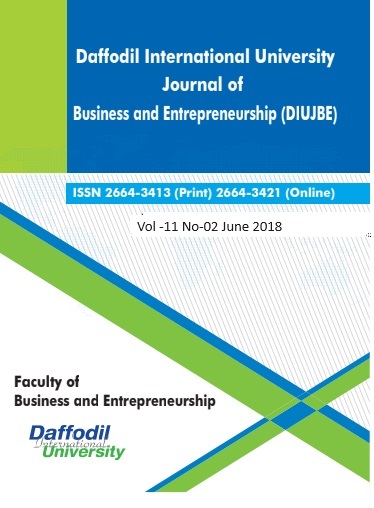Quality assurance in higher education institutes ( HELs) of Bangladesh
DOI:
https://doi.org/10.36481/diujbev011i2.v5w0tn93Keywords:
Quality Asmrance, IQACAbstract
The purpose of the article is to make awareness about the importance of Institutional Quality Asmrance Cell (IQAC) and its activities including the capacity building of the national framework of highe'r education in Bangladesh. The present gone mment of Bangladesh took the initiative year 2015 to establish IQAC as a pilot project in both private and public universities to ensure quality education in tertiary level There are 38 private and 31 public universities under this project by the supervision of Quality Asmrance Unit (QAU), UGC for three years and after completion of the project IQAC will be an integral part of the university.”’ The number of higher education institutions in Bangladesh has remarkably increased during the last one decade. At present the number of private and public universities in Bangladesh is 95 and 40 respectively. About 3.2 million students are studying now in these universities and approximately 0. million graduates come out each year However, the scope for the employment rate of graduates in Bangladesh is inmfficient,- many of them would have to fight for employment in local and global job market. In order to get a job in and outside Bangladesh, the graduates must have to pre pare themselves in the context of national as well as global requirements,- otherwise their opportunities for jobs would be narrow. The quality of the graduates has to be of international standard in terms of their (i) knowledge, attitudes and sofl-slnlls, (ii) updated course curricula to meet the global requirements, iii) Outcome Based Teaching Learning (OBTL) strategies and (iv) creative, evaluating and analytical assessment procedures to follow Bloom’s Taxonomy. The objective of IQAC is to ensure the quality education, develop shrilled graduates with high employability in local as well as global context

